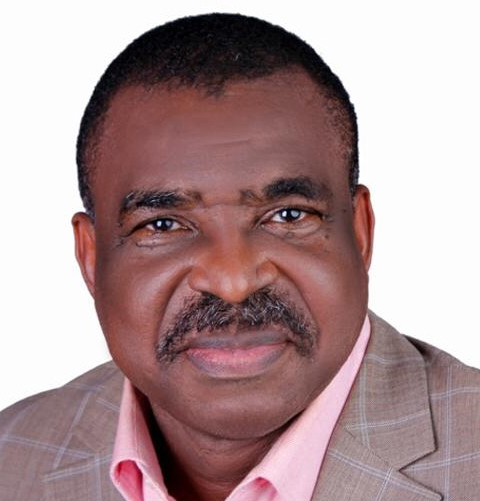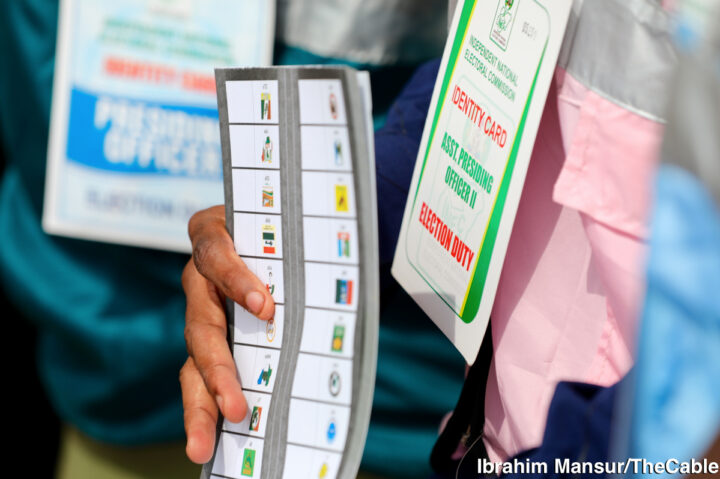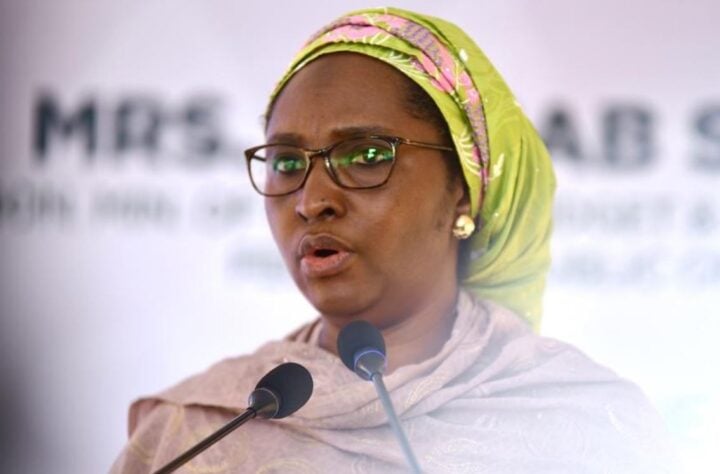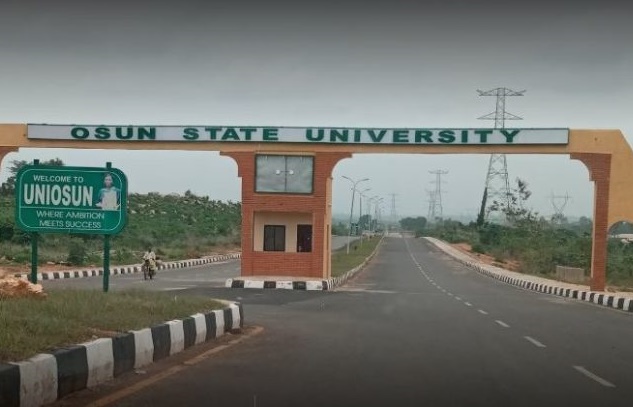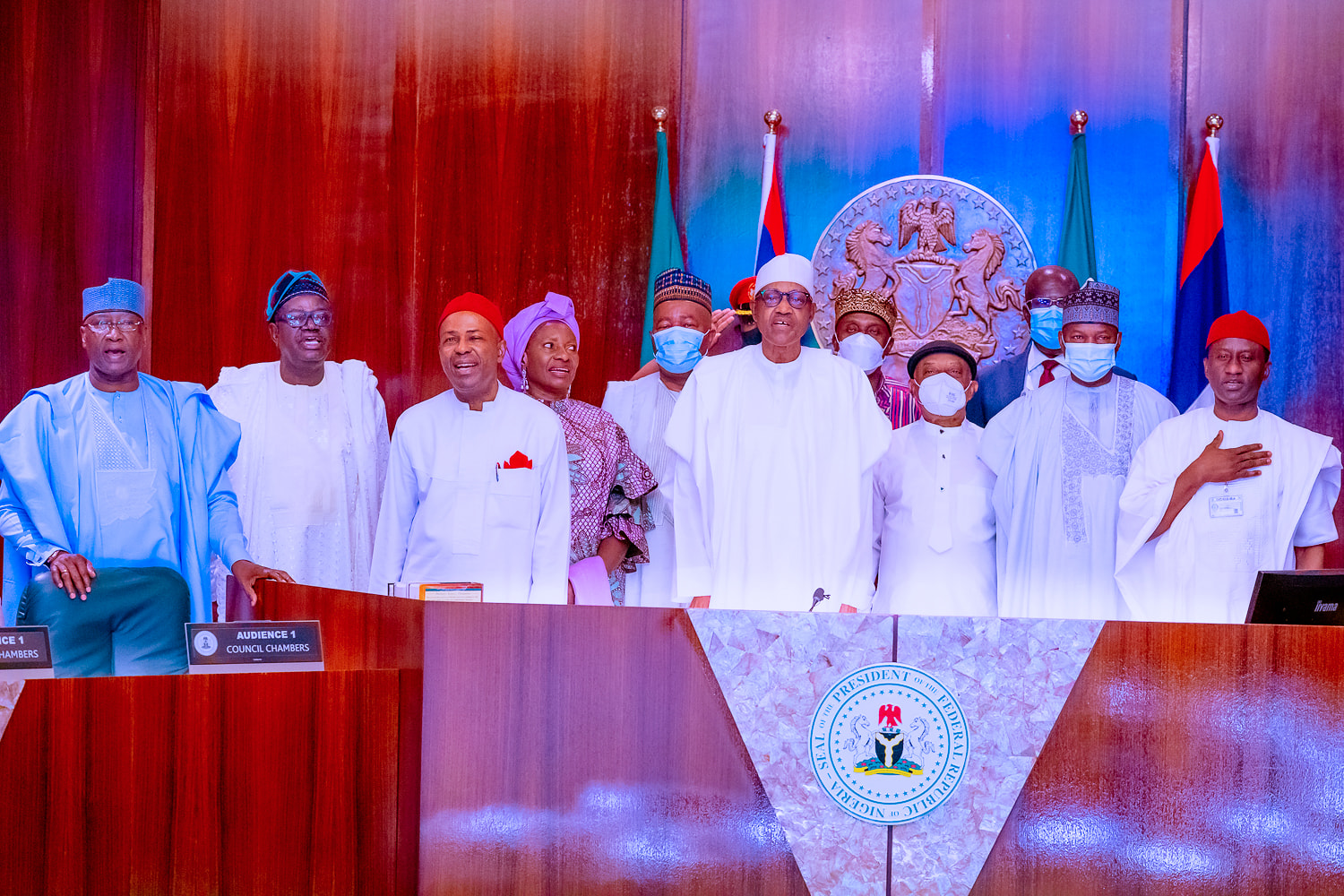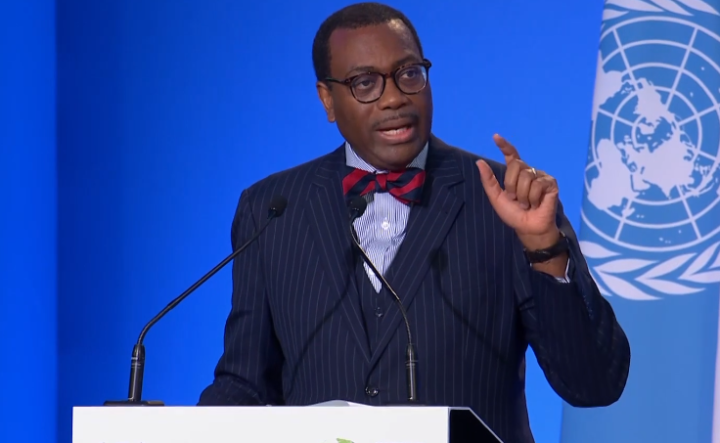As a development strategist, I like to indulge in scenario building. And against the current run of play in the highly fluid Nigerian political atmosphere awash with candidates in excess of 40 aiming at becoming president of Nigeria in 2023, the surprise scenario that l have imagined is:
Atiku Abubakar or Bukola Saraki paring with an Igbo man as a vice-presidential candidate. Let us say someone like Anyim Pius Anyim, ex senate president and secretary to the government of the federation, or Peter Obi, ex-governor of Anambra state and even Nyesom Wike as well as Udom Emmanuel of Rivers and Akwa Ibom States respectively.
That is with respect to the PDP stable.
From the APC flank, Godwin Emefiele, (current Central Bank of Nigeria, CBN governor) or Rotimi Amaechi, minister of transport can turn out to be the running mate to a presidential candidate from the north who would be a dark horse. Gauging the mood of the APC leadership, particularly the body language of its Chairman, Abdulahi Adamu, and National Assembly members, senator Ahmad Lawan, the current senate president readily comes to mind as the likely person that would emerge as a wild card after the hurly-burly expected during the much-anticipated party primaries scheduled for this month end is over.
Advertisement
Before, anyone makes the decision to start ‘beating up on me’ literarily, let us keep in mind that, it is not me, but the leaders of both the main opposition political party, PDP, Iyorcha Ayu (in concert with the 37 wise men) and APC’s Abdulahi Adamu, who irrespective of the mood of the nation which originally is to give the Igbos a chance to be president of Nigeria, that decided to throw the 2023 presidential contest open to both northern and southern aspirants.
Intriguingly, the dramatic swing from the dominant sentiments of conceding the presidency in 2023 to the Igbos, to the current mood of throwing it open to all nationalities, actually happened only in the past couple of weeks.
And the sea change validates, the observation by Harold Wilson, a former prime minister of the United Kingdom, UK, that one week is a long time in politics.
Advertisement
Although baffling, there are several conspiracy theories for the impending paradigm shift from the presidency rotating from the north to the south to throwing it open. And the most prominent is that if the main opposition party, PDP presents a northern candidate as it is likely to do, the ruling party, APC would be doomed not to win the presidential contest, if it does not also present a northern candidate.
That narrative is simply predicated on the prevailing notion that the average northern voter (the biggest voting block) would always vote for a northerner against any southern candidate presented, irrespective of the political platform. And it simply confirms the concept of a monolithic northern Nigeria. Assuming that is truly the case, then it validates the belief that there still exists a voting bias of northerners for only northern candidates, no matter the party that the candidate is flying their flag. And the import of that is that after over six (6) decades of independence from colonial rule and more than a millennium post amalgamation of southern and northern protectorates of the British empire, disunity persists like the sword of Damocles hanging over Nigeria and disharmony has remained like an albatross.
That is in spite of the mantra of one time Nigerian ruling party, National Party of Nigerians, NPN “one nation, one destiny” and a stanza in the old national anthem “though tribe and tongue may differ, in unity we stand.” lt is appalling that both referenced ideals have remained a mirage.
And equally disturbing is that our beloved country has rather than improve on its multi-ethnic relationships for harmonious co-existence of the estimated 250 tribes and tongues that make up the union, the situation has calamitously degenerated with ethnic and religious divide expanding from a mere crack about a decade ago, into a huge gulf. This is evidenced by the voting patterns in the north fueling the decision to jettison rotation of the presidency principle for emphasis on how best to position the party to win elections.
Advertisement
And the abysmally low level of education in the north particularly amongst the female is worsened by the current religious Insurgency which has seen about 18 million Nigerian school children (mainly in the north) out of school, according to a survey conducted by UNICEF, is a culprit for the anomaly of northern voters casting their votes only for a presidential candidate of northern origin.
The conventional wisdom, “educate a woman, educate a nation…” rings true here.
It is trite to state that the low level of Western education of the masses in the north is largely responsible for the herd mentality or lack of voting independence of our northern brothers/sisters, who only vote for northern candidates and which is the reason being advanced as a justification for both the APC and PDP intention to feature northerners as their presidential candidates. And without taking into cognizance the feelings of other ethnic nationalities that make up Nigeria, a highly destructive crisis of monumental proportions could be on the horizon. That is simply because some of our conscienceless politicians seem about to move our beloved country from frying pan to fire by jettisoning rotation of the presidency principle which is a lesser evil.
By now it should be clear to all that not narrowing the 2023 Presidential contest to a political zone, (particularly the south) has been the practice in the past, and in tune with the spirit and letter of rotation of the presidency principle, (practiced since the return of multi-party democracy in 1999) is the culprit for the present mad rush by every Tom, Dick, and Harry to join the presidential race.
Advertisement
Were the presidency to have been zoned to the south and perhaps to Igbos in particular, as had been envisaged and anticipated, the fleet of swans from the northern axis of our country currently strutting the presidential runway, would have at this stage been like spectators waiting in the wings to impress whoever emerges from the south as Presidential candidates of the two main parties with a view to becoming their running mates as was the case for the Yorubas in 1999 when Olusegun Obasanjo emerged as president and for the Hausa/Fulani in 2019 with president Buhari being re-elected.
In compliance or in tandem with the rotation calculus, the north and southeast in 1999 stood down their interest in the presidency and allowed Olusegun Obasanjo and Olu Falae to become the exclusive presidential candidates of the two main political parties.
Advertisement
And a similar gesture was extended to our northern brothers and sisters in 2019 when both the APC and PDP presidential candidates were president Mohammadu Buhari and ex-Vice President, Atiku Abubakar.
Contrarily, in the run-up to the 2023 general elections, the door into Aso Rock Villa that could have been opened exclusively for the Igbos has been left ajar to welcome any and all that care to throw their hats into the ring.
Hence, rather than being a contest exclusive to the Igbos, at best, and the south, at least, the presidential election in 2023 is currently a national binge.
Advertisement
With aspirants numbering over 40, and the primaries scheduled to hold this month-end, the contest for the presidency in 2023 is practically on the wire.
And it seems to me that the motivating factor for the motley crowd can be captured in a popular colloquial parlance ‘monkey see, monkey do’; agam ni ibe aga’ in Igbo dialect and ‘mo gbo, mo ya’ in Yoruba dialect as well as ‘Yen abi yerima a sha kida’ with a similar meaning in Hausa dialect.
Advertisement
Aside from the WaZoBia elements in the jostle for the presidency, not even the hefty expression of interest and nomination fees of a hundred (N100) million naira demanded by the ruling party, APC, or the N40m for the main opposition party, PDP has discouraged or deterred monied politicians and deep-pocketed businesses men and women alike from joining in the jamboree of which becoming president of Nigeria in 2023 has descended.
It also has not helped that president Mohammadu Buhari in a recent television interview stated that he was keeping to his heart, the preferred candidate that he would like to hand over the keys to Aso Rock Villa, as the next occupant.
What that presidential pronouncement has done, is throw the whole gamut of political actors and even nonpoliticians into a frenzy.
Hence it is not surprising to me that becoming president of Nigeria in 2023, has assumed the dimension of a bazaar whereby Nigerians of all characters- including those challenged intellectually, morally and integrity wise are now staking their claim to becoming the next president of Nigeria which has practically debased the exalted office of president of Nigeria.
One can bet that more than ever, most of the politicians and indeed most Nigerians with deep pockets who covet political power must be consulting prophets and marabouts who would be telling them that they are the anointed candidate that president Buhari was alluding to in the most recent, rare and now famous television interview.
So, in this period of rising irrationality being exhibited by the demagogues, even as our president is keeping to his chest, who becomes president of Nigeria in 2023 like a JOKER in a game of cards, some governors are also attributing their choice of a successor to God, which is somehow blasphemous.
In light of the above, it is not unexpected that all shades of characters would show up to participate in what can best be described as the epic auctioning of the Nigerian presidency to the highest bidder.
Auctioning, not just in terms of money, but also in the sense of the ability, capacity, and who is better positioned to win the presidency between candidates from the two major political parties and with ethnic origins from the north or south as the major deciding factors, not equity, and fairness that were previously the drivers of the rotation of presidency calculus. It is incredible how the rotation agreement that has hitherto balanced the precarious multi-ethnic composition of our country is being stepped down while prioritizing the ability and capacity to win the presidency in 2023. My fear is that the road to nationhood which has been topsy turvy over 62 years after independence may become more turbulent if our leaders take the short-term view of neglecting the long term power rotation that has so far been an efficacious panacea to the existential fear of disharmony.
Although the rotation of the presidency is an imperfect solution provided by our forbears, by now, we are supposed to have improved upon it by restructuring our political system via devolution of power from the center to the states and the creation of state police to tackle insecurity.
Remarkably, the PDP and APC which have been playing alternating roles as ruling and main opposition parties in the leadership of our great country since 1999 till date, appear ready to engage in another tug of war to outwit each other for the hearts and souls of Nigerians, hence two northerners may be fielded to become president of Nigeria in 2023.
The observation above is derived from the fact that both parties have been equivocating and prevaricating about the zoning of the presidency or throwing it open, a process that has made becoming president of Nigeria in 2023, a very risky gamble as never witnessed before.
It is striking that, not until President Muhammadu Buhari last Wednesday 11 May held a valedictory session for ten (10) of the 28 members of his cabinet and party who had initially signified interest in becoming president of Nigeria, did a few of them chicken out of the race before the Monday 16 May deadline expired.
Hopefully, before the May 23, exercise of screening the candidates, preceding the May 30-31 and June 1 scheduled for the conduct of the primaries for the ruling party, APC, and the May 28-29 date for the PDP primaries, many more would have chickened out.
The pulling out from the race by some of the presidential candidates when the threat of retaining their current jobs became the opportunity cost, simply indicates that most of those who had thrown their hats into the ring for the presidential contest, for lack of a better term, are as Americans would say, ‘wannabe’.
It also implies that most of those that pretended to be intending to become the first citizen of our country actually had no plans to really become president of Nigeria.
But they only jumped into the fray due to the bandwagon effect engendered by the fact that it is not zoned and the expectations of miracles to happen such that they may be the president Buhari anointed candidate. It is also significant to note that they may also be aiming to settle for some consolatory prizes like ministerial appointments or chairmanship positions on lucrative boards of corporations belonging to the government.
That is coupled with the fact of being in the exclusive club of those who doled out N100m and N40m for the acquisition of both APC and PDP, could also enable the so-called presidential aspirants have the national name recognition to position them for future presidential contests and even the opportunity of strategic positioning as future gubernatorial candidates.
By and large, most of the presidential aspirants were only engaged in what can best be described as a ‘joy ride’.
The chaotic situation particularly applies to the politicians from the ruling party at the center, APC whose members angling to replace President Muhammadu Buhari as the commander in chief of the armed forces of Nigeria and the prime occupant of Aso Rock Villa, (the seat of presidential power) in 2023, have presently been pruned to less than 25 in number.
The assertion above is validated by the fact that labour minister, Chris Ngige, for instance, apparently had no plans to really contest for the exalted office. But he only joined the bonanza for the fun of it. Hence he withdrew his candidacy after president Buhari issued an ultimatum for public officials keen on contesting for public office to resign, latest on Monday, May 16.
Before him, senator Orji Uzor Kalu who is the Senate minority whip and governor Bala Mohammed of Bauchi state had also dropped out of the presidential race. Paulin Tallen, Minister of women affairs has also rescinded her decision to quit the cabinet in order to contest for a senatorial seat in the Plateau state, just as petroleum minister Timipre Silva is also said to have shelved his initial plan to seek election into the office of the president of Nigeria.
In the list of those that have stepped down their ambition both as governorship and presidential contenders are also attorney general, and minister of justice, Abubakar Malami, who was gunning for the governorship of Kebbi state, as well as Godwin Ifeanyi Emefiele, (Governor of the CBN) who was rumored to have been angling to become president of Nigeria.
But Emefiele was sending mixed messages by pussy footing until the recent revelation that he did not fill out or return the expression of interest and nomination forms purportedly procured for him by farmers who are enamored by his interventions in the agricultural sector, especially rice farmers who aver that their lives have been impacted positively by Emefiele.
Meanwhile, were the CBN governor, Emefiele to have pursued his rumored ambition to its logical conclusion, he would have been mirroring or mimicking Mario Dragi, the current prime minister of Italy who had previously served as president of the European Central Bank.
In any case, dropping out of critical political races is not peculiar to Nigeria. It may be recalled that in the UK, Chuka Umunna, a Nigerian born parliamentarian had opted out of the race of being the leader of the labor party when the lot had more or less fallen on his lap, following Labour Party’s defeat in a critical UK election and the resignation of Ed Miliband as leader. Umunna was identified as one of the potential candidates to take over as the new leader of the party.
But he demurred in the 11th hour, citing family issues.
Beyond extraordinary political circumstances for withdrawing interest in political contests, there is another angle to the apparent all-comers affairs that the 2023 presidential contest has become.
And it is that the latter-day ‘wannabe’ presidential aspirants are spoilers, pure and simple. That point of view is predicated on the belief that those that fall into that category are the crop of aspirants that are just craving the title: of ex-presidential candidate.
Indeed, their real desire is the prefix to be attached to their names like the traditional title of a chief or an academic with a doctoral degree or a medical doctor. In other words, they are only interested in the title of ‘ex-presidential candidate’ for the sake of it.
So, if it takes N100m to obtain, or more appropriately procure the title, (in the case of those aspiring under the APC platform) so be it. Likewise for the presidential aspirants (leveraging the PDP forum) who are doling out N40m for nomination and expression of interest forms.
After all, as we are well aware, some Nigerians spend similar huge sums of money acquiring chieftaincy titles.
So what the heck!
It should also not be lost on us that for the academically inclined, the school fees for a Doctor of Philosophy, Ph.D. degree from an Ivy League university such as Harvard is about one hundred thousand ($100,000) dollars.
Convert the dollar value to figure out the equivalent in our local currency-the naira, exchanging at about $1-N600=N60m and you can see why N40m or N100m cost of expression of interest and nomination forms are not such a big deal.
It is worthy to note that, whereas the politicians that desire the ex-presidential candidate title would get it by merely paying N100m or N40m as the case may be, the academically inclined, would not only pay the huge sum of money as fees to acquire the knowledge, he/ she would also be required to invest time and energy in pursuit of the intellectual laurel.
Needless to stress that the exercise can, by its very nature, be highly rigorous and exacting as opposed to acquiring the title of an ex-presidential candidate which can be as easy as a breeze.
The scenarios described above simply validate the aphorism ‘different folks for different folks’.
And the category of presidential aspirants cataloged above are quite unlike and therefore not in the same genre as former Vice President, Atiku Abubakar, Waziri Adamawa, who is a five (5) time veteran of presidential contests, and currently vying for the presidency on the platform of PDP for the 6th time.
It does also not apply to former Lagos state governor, Bola Tinubu, Asiwaju of Lagos, and one-time senator who has stated that it has been his lifetime ambition to become president of Nigeria. Ditto for Senator Bukola Saraki, a former governor of Kwara state and ex-president of the Nigerian senate who had also contested for the office of the president of Nigeria in 2019. Also not included is Peter Obi, former governor of Anambra state and running mate to Atiku Abubakar in the 2019 presidential contest and a social media sensation, who is another candidate that has the potential to become president of Nigeria.
The aforementioned aspirants and a couple of governors like Aminu Tambuwal of Sokoto State, Nyesom Wike of Rivers state, and perhaps Emmanuel Udom of Akwa Ibom state, who have the financial wherewithal to pursue their ambition, are by every measure or stretch of imagination prepared for the race.
That is underscored by the fact that most of them, except a couple, have established nationwide structures to support their mission.
But as the situation in the United States of America, USA where the billionaire ex-major of New York, Mike Bloomberg, tried and dropped out of the race for the presidency in 2020 under the platform of the Democratic Party has proven, money alone can not guarantee success for candidates without real Politicking.
Not in the USA and not in Nigeria.
Nevertheless, money matters in politics as poignantly exposed by the fact that the incumbent president Buhari, relying on his cult figure alone (legendary 12 million voters in the north) had tried and failed three times to become president without adequate funding.
It was not until oil-rich Rivers state resources and Lagos state industrial and economic powerhouse was put behind his ambition in 2015, that his presidential ship that had set sail in 2003, could navigate through Nigeria’s stormy political waters to berth in Aso Rock Villa.
Against the backdrop of the foregoing narrative, the rest of the aspirants in my humble opinion are simply being opportunistic and positioning for other benefits.
That is because they are largely unprepared as they lack what it takes to become president of Nigeria in terms of the fact that they do not possess the national clout, which is evidenced by their lack of household name recognition.
Even when they are widely known, they also suffer the handicap of the inability to put their money where their mouth is. That is reflected by the fact that they are most likely bereft of the capacity to deploy as much as one hundred (100) billion naira that may be required to get the mission of becoming president of Nigeria accomplished.
And the scenarios laid out above are assuming all things are equal and also baring the imposition of candidates by the leadership of the political parties. It is worth pointing out that the imposition of candidates in political leadership recruitment has been a malaise that has been afflicting our body polity, and which hopefully the new electoral act 2022 has addressed via section 84 (9) that makes it a tad more difficult to happen.
Having analyzed the chances of most of the other serious aspirants, folks may be wondering why l am not reckoning with the interest being expressed by the current Vice President, Yemi Osinbajo to step into the shoes of his boss, President Buhari.
While l recognize his right to aspire to become president of Nigeria in 2023 which is only a step away from his president position, it must be recognized that there is a limit to which happenstance can carry a man.
And my pragmatic prognosis which those in Osinbajo’s camp may deem as pessimistic and an affront is not meant to eviscerate him as it is derived from both trend analysis and reality check.
With respect to historical trend analysis, Nigerian leaders, (be they presidents or governors) are hardly keen on passing on batons of political power to their deputies.
Perhaps, it has to do with the reality that the second-in-command position (which is what a Vice President or deputy governor really is) often is deliberately and diligently selected from a pool of the politically weak. Former President Olusegun Obasanjo at the presidency level and Ex-Lagos state governor, Bola Tinubu, at the governorship stage are the franchisers of that formula after learning the hard way that their deputies were more politically sagacious than them.
Since, as the saying goes: ‘necessity is the mother of invention’, a counter-strategy was formulated as an antidote. Having been efficacious over the past two decades, it is unsurprising that it is now a sort of holy grail for presidents and governors alike when choosing their running mates.
For Obasanjo, the challenge from then Vice President, Atiku Abubakar, who was poised to contest the presidency of Nigeria against his boss who was seeking a second term, rankled him.
After Atiku Abubakar, an astute politician by every measure demurred or withdrew his interest in contesting for the office of the president in 2003, it would appear that Obasanjo never forgave his second in command as he considered the challenge as an affront.
More so as it was rumored that Obasanjo actually went on his knees begging Vice President Atiku to lend him the critical support that he needed to realize his second-term ambition.
So, it was unsurprising that in 2007 it was payback time from president Obasanjo to Vice President Abubakar who was effectively blocked from stepping into the shoes of his boss, Obasanjo, even if he was only a heartbeat away from becoming no 1 citizen from his no 2 position.
Although a spirited legal battle superlatively staged by then Vice President to ensure that he becomes president followed, it was futile.
Before the Obasanjo and Abubakar epic succession battle at the state government level, Bola Tinubu had found himself in a similar political bind.
And he learnt the hard way that choosing a politically powerful deputy could be lethal. It may be recalled that Mrs Kofoworaola Bucknor, his deputy during his first term as governor of Lagos state gave him a bloody nose and almost prematurely ended his career following a university of Chicago certificate scandal reportedly instigated by the camp of his deputy.
To avoid what l would like to term the ‘Atiku Abubakar and Kofoworola Bucknor Effect’, most presidents and governors have since then been picking weak politicians like Vice President or deputy governor. Which is why l am not optimistic about the chances of Vice President Yemi Osinbajo becoming APC candidate in the looming 2023 presidential contest.
In fact, finding a president or governor in Nigeria that worked toward the Vice President or Deputy Governor replacing him is akin to searching for a needle in a haystack.
Applying the analogy of a football team, Vice Presidents and deputy governors are not considered the first eleven that usually start the game. But good only for the reserve bench and only invited into the field of play in the event that a member of the first eleven, gets exhausted or sustains an injury.
Thus, while Umar Yar’adua, former governor of Katsina state was preferred by Obasanjo to replace him in 2007, Tinubu choose Babatunde, his chief of staff to take over from him as governor, the same year.
There are myriads of other instances, but suffice it to say that for the reasons outlined above, presidents and governors rarely consider their second-in-command as presidential or governorship ‘material’.
From the prism of a reality check, the unvarnished truth is that Vice President Yemi Osinbajo is a Christian and a pastor of the Pentecostal denomination, specifically of the Redeem church.
In Nigeria today, where religious fanaticism has taken such an ugly turn, to the extent that religious intolerance as evidenced by the gale of killings of fellow citizens in the name of religion, has become the norm in the land of our birth, the prospect of a Pentecostal church pastor becoming president of Nigeria, appears to me to be very remote in our highly ‘religionized’ country.
We only need to recall the outrage that followed the discovery that the minister of communications and digital economy, Isa Patami is a Muslim cleric to get the photo of how Nigerians desire separation of state (government) from religion.
In fact, it is President Buhari’s low appetite to respond to public outcry that has kept Patami on the job. Otherwise, by now he would be an ex-minister. And after the storm, Patami too has been lying low.
Owing to the outlined prevailing political dynamics in our country at this present time, although l believe in miracles, l can not muster the faith to buy into an Osinbajo presidency in 2023.
As such, l would like to advise readers to discountenance the polls which have been putting Osinbajo and Peter Obi (ex two times Anambra state governor also Vice Presidential candidate to Atiku Abubakar) ahead of the pack of all the presidential aspirants in 2023.
That is because, given the current realities, such ratings based on established parameters of rationality are simply, bunkum. Those in doubt of my analogy would have the scales drop from their eyes by 28-31 May and 30 May to 1st June, when the two leading political party’s primaries would have been concluded.
The true and rather sad reality is that winning the presidency, as opposed to rotation of the presidency is currently the overriding and overarching interest of the leadership of both the ruling and main opposition parties, the APC and PDP respectively. That was not the case about 30 days ago. But it is the reality today.
Which is why the presidential aspirants from the south must wake up to the reality that the rotation of the presidency between the north and south that was the dominant agenda of political actors since the return of multi-party democracy, has been Overtaken By Events, OBE-as civil servants like to term such unforeseen circumstances.
In light of the ongoing shadowing of each other by both the APC and PDP to see where each party would zone their presidential candidates; and the evolving sentiment that it would remain in the north for some expedient reasons hinged on its claim of being the biggest voting block; what has become of the postulations and grandstanding by southern governors forum under the leadership of Ondo state governor, Rotimi Akeredolu, that the presidency must return to the south?
When l noted in my article titled: Southern Governors Friendly Rebellion And The Perils Of Indifference By The Presidency, published widely on 23 May 2021 (about a year ago) which is to the effect that the posturing by southern governors forum, as opposed to negotiation with their northern counterparts, would only heat up the polity; l was thinking ahead. But l never envisaged that it would manifest in the shape and manner that it has unfurled so fast.
And it may also be recalled that l had also observed in four chapters of my twelve chapters book titled: “Becoming President of Nigeria. A Citizen’s Guide”, launched in Abuja on 10th May, that the Igbos should be given the chance to produce the president of Nigeria in 2023. In the book l had also expressed heartbreak that the southeast does not have any presidential ‘materials’, that can step up to the plate. So the prospect of an Igbo presidency in 2023, may just be a mirage.
Although my analysis angered some Igbo nationalists, I was only being pragmatic and gazing into the future. All things being equal, l am almost certain that l will be vindicated after the primaries of the two major parties are held by month-end. Applying their recent actions as barometers, Orji Uzor Kalu and Anyim Pius Anyim, apparently recognize the existential reality of no clear pathway to Igbo presidency in 2023, because my prognosis since last year is manifesting right now under our very eyes.
Guided by my assessment that there is little or no chance of the emergence of an Igbo as our next president, l had advised that an Igbo should be prepared to be under the apprenticeship of, say an Atiku Abubakar from the PDP family as president in 2023 as it was assumed that APC would field a southern candidate for president in 2023.
After serving as Vice President for a single term, he/she would be ready to contest for the number one position, leveraging the power of incumbency and having gained household name recognition. If that becomes a reality, it would mark the first time that a Vice President would step into the shoes of his principal via election and not due to death simply because it was from the get-go, designed to have that outcome.
But those who prefer to live in a bubble and only see things in black and white, rather than thinking out of the box which the prevailing political situation demands, denounced and discountenanced my formula for the Igbos to finally gain a foothold in Aso Rock Villa by becoming Vice President of Nigeria in 2023 and finally president in 2027. It is worth restating the fact that the last time an Igbo occupied the position of head of state of Nigeria was from January 1966 to July of the same year. Subsequently, only Alex Ekwueme of blessed memory had the good fortune of becoming Vice President with Shehu Shagari as president in 1979.
And l hate to state the not so obvious and inconvenient truth which is that the drought of Igbos in the apogee of leadership in Aso Rock Villa would continue in 2023.
Anchoring their hope on equity and morality which are hardly valuable qualities in politics, has rendered the Igbos politically naive and vulnerable to manipulation.
It can be likened to a football team that plans to defeat the opposing team only through a penalty shoot-out at the end of the game.
It would also appear to me that the Igbos do not seem to have figured out that the political arena is neither like a church or mosque atmosphere where equity and morality matter the most, hence they have been banking on a turn-by-turn equation.
Going beyond the Igbo dilemma, being that only one person can become president of Nigeria in 2023, all those that doled out N100m and N40m respectively for APC and PDP forms, have automatically become elite members of the parties.
Thus, they would not be casualties or liabilities, but Very Important Personality, VIP in their respective parties.
As such, they would be prime assets, since it is from amongst them that the vacancies that would become available after the 29 May 2023 inauguration of the next president of Nigeria and the Vice President, would be filled.
Against the backdrop of the foregoing, a fitting analogy would be that those who invested the hefty sums of money to acquire expression of interest and nomination forms, but fail to become president, as only one person can become president of Nigeria at any point in time: they can be likened to people who decided to jump up very high to touch the sky.
In the event that they are unable to attain their vaulting ambition of touching the sky, they would be content with walking away with a handful of clouds. So rather than being losers, as the uninitiated members of the public are wont to believe, in an uncanny manner, the wannabe presidents would ultimately be winners, even if they fail to clinch the coveted prize of becoming president of Nigeria, in 2023.
Magnus Onyibe, an entrepreneur, public policy analyst, author, development strategist, alumnus of Fletcher School of Law and Diplomacy, Tufts University, Massachusetts, USA and a former commissioner in Delta state government, sent this piece from Lagos.
Add a comment
